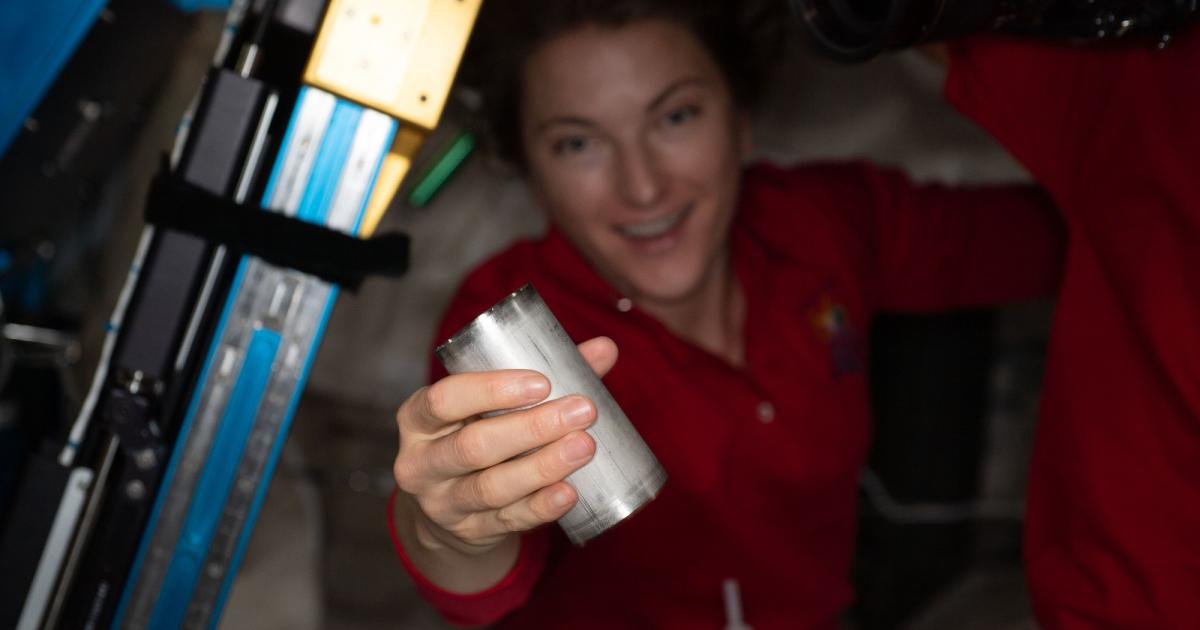This week, NASA revealed that the International Space Station’s Environmental Control and Life Support System (ECLSS) is recycling 98 percent of all water astronauts bring aboard the station…
Imagine you are chilling on the sofa watching netflix with your girl and some random girl knocks at your door and shouts: “WOW! Your filtered piss tastes so GREAT!”
…
Thats an odd way to give someone a blowjob.
Both cool and disgusting.
I mean, the water we drink now has been an animal or a human’s pee.
I don’t know man
Collecting sweat? I’m imagining astronauts up there wringing out wash cloths. “Sniff. Sniff. Dammit, Buzz would you stop mopping up your crack. We all don’t wanna be drinking Eau de Taint with dinner later.” Oh, they use a dehumidifier, yah that makes more sense.
Saul Goodman would be proud
I’ve always wondered how long a tank of water of some size would last. Everyone always handwaved away all the details of energy, food, water, etc in sci fi shows, but I’ve always been interested in those aspects.
The Martian was satisfying for this reason, but I want MORE.
Watched the Expanse?
Yeah, really loved it, thought about mentioning it but left it out.
And everyone laughed at Kevin Costner in Waterworld.
What about poop?
Here’s a general idea of what happens with feces on the ISS:
Waste Collection: The toilet on the ISS uses airflow to direct waste into the right place, given that there’s no gravity to help. When astronauts need to poop, they use a specially designed toilet with straps to hold them in place. The toilet includes a smaller hole and fan system that uses suction to pull the waste away from the body.
Waste Storage: Once the waste is collected, it’s stored in a separate sealed container. The toilet system compacts and stores solid waste. This waste is exposed to vacuum to kill bacteria and reduce odor.
Disposal: When the container is full, it is removed and stored in a special section of a cargo ship, like a SpaceX Dragon or a Northrop Grumman Cygnus, that is set to leave the ISS and reenter Earth’s atmosphere. Upon reentry, the ship and its contents (including the waste) burn up, essentially incinerating the waste.
This answer was given by ChatGPT. I do not know how true it is, but it clearly sounds like it. I hear about freeze-dry process before.
This is accurate except that the Dragon and Cygnus spacecraft do not burn up in the atmosphere. Waste is usually loaded a disposable spacecraft like the Progress which does burn up on reentry. Some is returned to earth occasionally for testing via the Dragon or Cygnus.
Unfortunately Cygnus does not provide return capability, it is fully expendable so anything downmassed is going to experience a really hot welcome.
The Dragon has some expendable storage that can also be used for “garbage day”.
Yeah, it would big news if a Dragon burned up.
I assumed they meant it was ejected during reentry but on reflection that would not be worth the risk…though I do like the idea of flaming dragon poop streaming across the sky.
You’re not far off, most spacecraft have multiple parts, you can simplify to two:
the orbital module and the return module
The Dragon does indeed have an expendable module they call the “trunk”. The capsule comes home but the trunk doesn’t.
The NG Cygnus, ESA ATV, and JAXA HTV are all fully expendable. They burn up completely.
The soyuz is the best example, it has three parts and only one comes home. They save a lot of weight by only needing to make one part strong enough to make it back.
Picture from Wikipedia:
https://en.m.wikipedia.org/wiki/File:Soyuz-TMA_descent_module.jpg
turn it into potatoes?
Please, tell me this wine isn’t made from your pee, because its delicious…
#theMarinerValleywayoflife“drinking your own recycled piss? Sign me up”, said no aspiring astro boy
Maybe some big fans of Dune who want to know what stillsuit water tastes like.
The turds are stored in the legs! What a cool suit!
Well, they’re in space… so that makes a lot of sense.
Hmm… I had one question from the get go. But it was not answered by the article. Namely what happens the remaining 2%? They say there’s a chance to recovery it in the future but not what they do with it currently.
Also, nice stillsuit reference.
I think this has to do with the fact that water soluble wastes are harder to remove from water but easier to concentrate. I’m no chemistry expert but I think that’s why
But, given that’s the case, what do they do with the wastes? Is it shot out into space or brought back to earth?
Ever experienced a raindrop on the back of your neck? Straight from the ISS.
They could probably make a tidy profit selling it to internet weirdos instead.
Nice that’s a huge milestone, that way you don’t have to lug thousands of kilos of water to mars bc you waste it all, you can just keep reusing the same amount over and over













